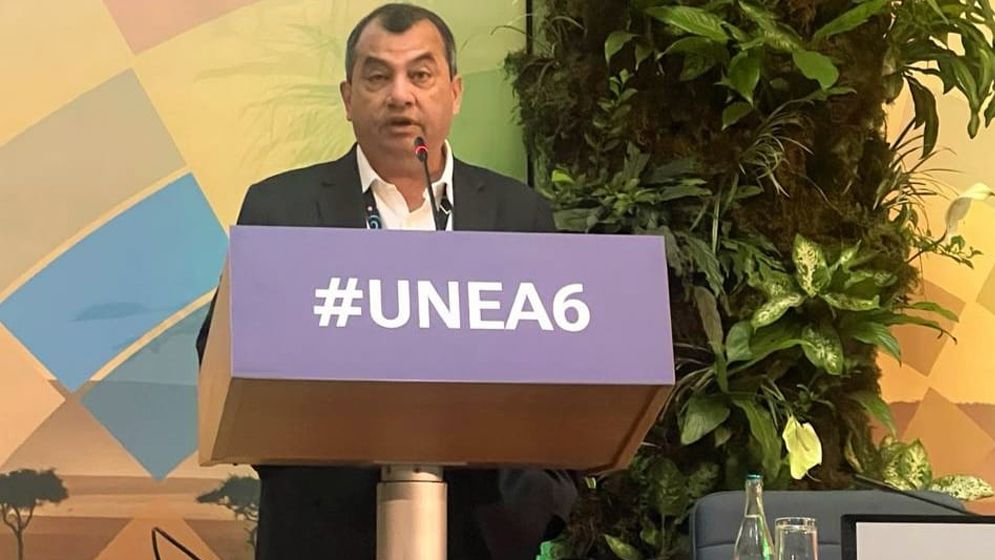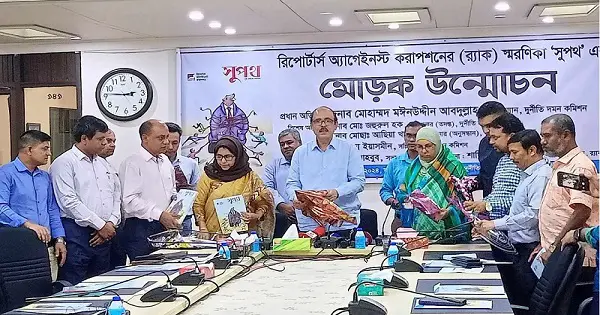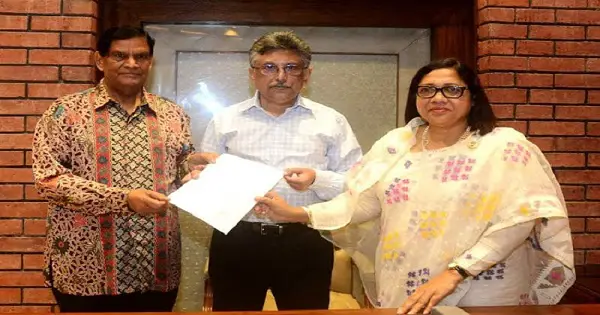Environment, Forestry, and Climate Change Minister Saber Hossain Chowdhury said that countries worldwide must take urgent and clear steps to achieve net zero emissions before 2050 and limit temperature rise to 1.5 degrees Celsius.
The Environment Minister said this while delivering the National Statement at the 6th United Nations Environment Conference in Nairobi, Kenya, on Thursday (February 29) evening. President of UNEA-6 Leila Benali, ministers of various countries, distinguished representatives, and world leaders were present on the occasion.
The environment minister said that despite its negligible contribution to climate change, Bangladesh is facing dire challenges like melting glaciers, floods, and rising sea levels. The minister highlighted the importance of addressing the root causes of climate change and the need for greater multilateral commitment towards sustainable development.
Highlighting Bangladesh’s institutional commitment to environmental responsibility, the Environment Minister referred to the proposal to declare an ‘Earth Emergency’ passed unanimously in the National Assembly in 2019. The minister said that under the leadership of Prime Minister Sheikh Hasina, Bangladesh has adopted the ‘Mujib Climate Prosperity Plan’ to promote climate resilience and sustainable development. The minister highlighted the inclusion of environmental protection principles in the constitution of Bangladesh and proved the country’s sincerity in dealing with climate change.
Environment Minister Saber Hossain Chowdhury referred to plastic pollution as a threat to the environment and public health and called for concerted efforts to tackle plastic waste at both the national and international levels and transition to sustainable consumption and production systems. Bangladesh reiterated its commitment to global environmental governance. He expressed hope that UNEA-6 will lead the international community towards a greener, more stable future.





